Rasmus Munk: Future and Ethics
A conversation with Rasmus Munk, the visionary Chef and Creative Director of Alchemist, around the future of food.
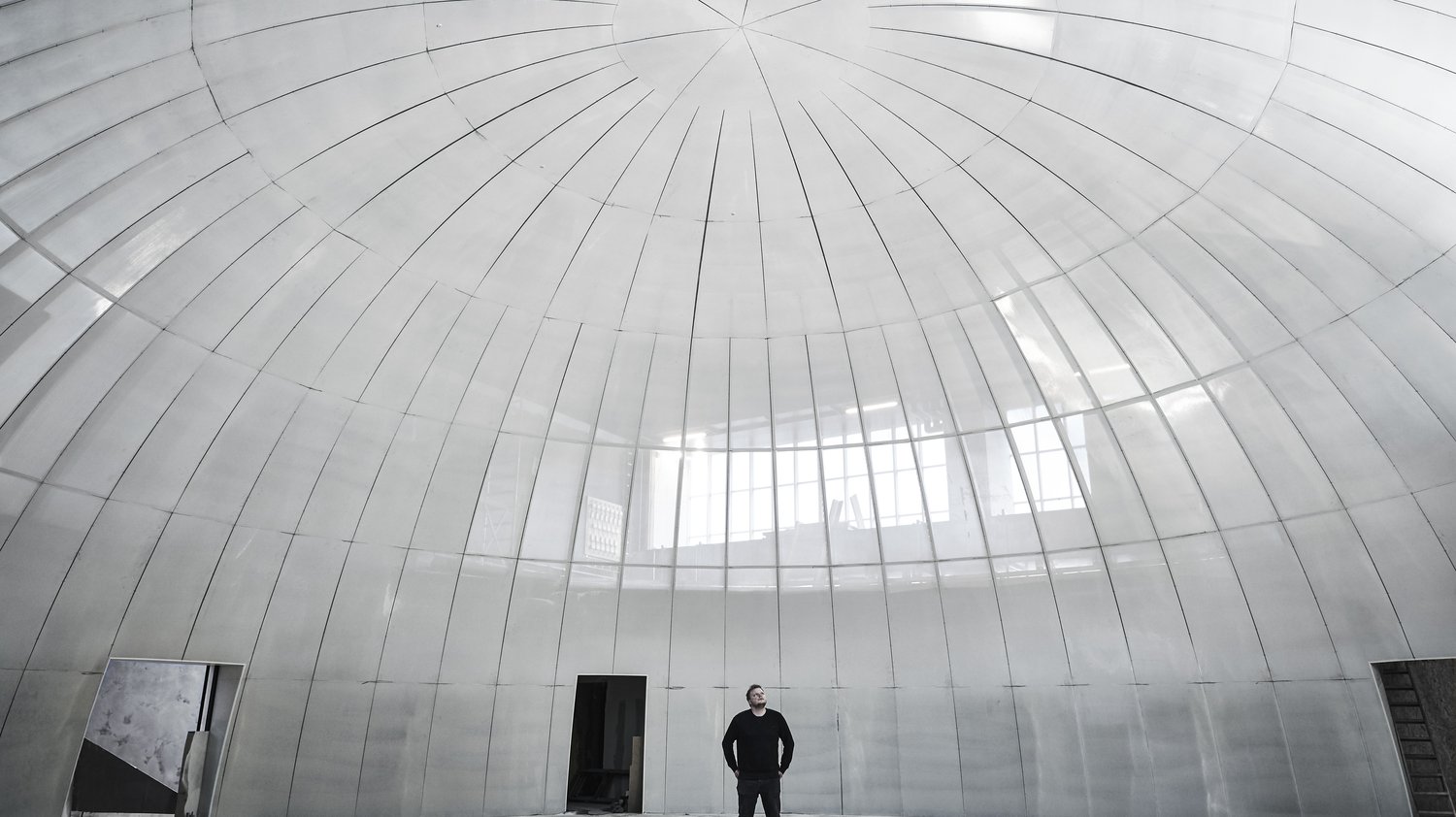
An enlightenment for the senses, all of them. An extreme stimulation of the intellect. A powerful non-verbal communication, emotional, fiercely direct. A seriously-kiddish fun, devote to ethics. An incomparable astonishment. Total and enchanting. Exciting, disarming.
This is just the beginning of Alchemist, the Copenhagen project by the visionary mind of Rasmus Munk.
Chef? Artist? Creative director? Surely an eclectic character, playing a pivotal role in every little detail of his restaurant. Even if, in all fairness, it is way more than just a restaurant.
The experience, defined as “Holistic”, is articulated in almost fifty edible “impressions”, and completed with live performances and projections. The team, nearly a hundred people, is clearly composed by chefs and waiters, but also artists, dramaturges, scientists, researchers and many more professionals. A virtuous universe, a gift to the world.
Judging it as “weird”, means scratching only the surface of what is probably the most ambitious attempt in culinary history.
But aside from this, Munk, dedicates his time to great causes: see the collaboration with some important agencies to imagine future space foods, the extremely beautiful, moving and never shouted work with fragile children in hospital, or the soup-kitchen opened for those in need of a hot meal.
In this open dialogue we will follow his reflection upon the future of food, touching eight macro-themes: the evolution of fine dining, the normalization of alternative ingredients, the productive system problems, the role of a contemporary chef, the coherence in new creations, the new technologies, the value creation and the equal rights issue.
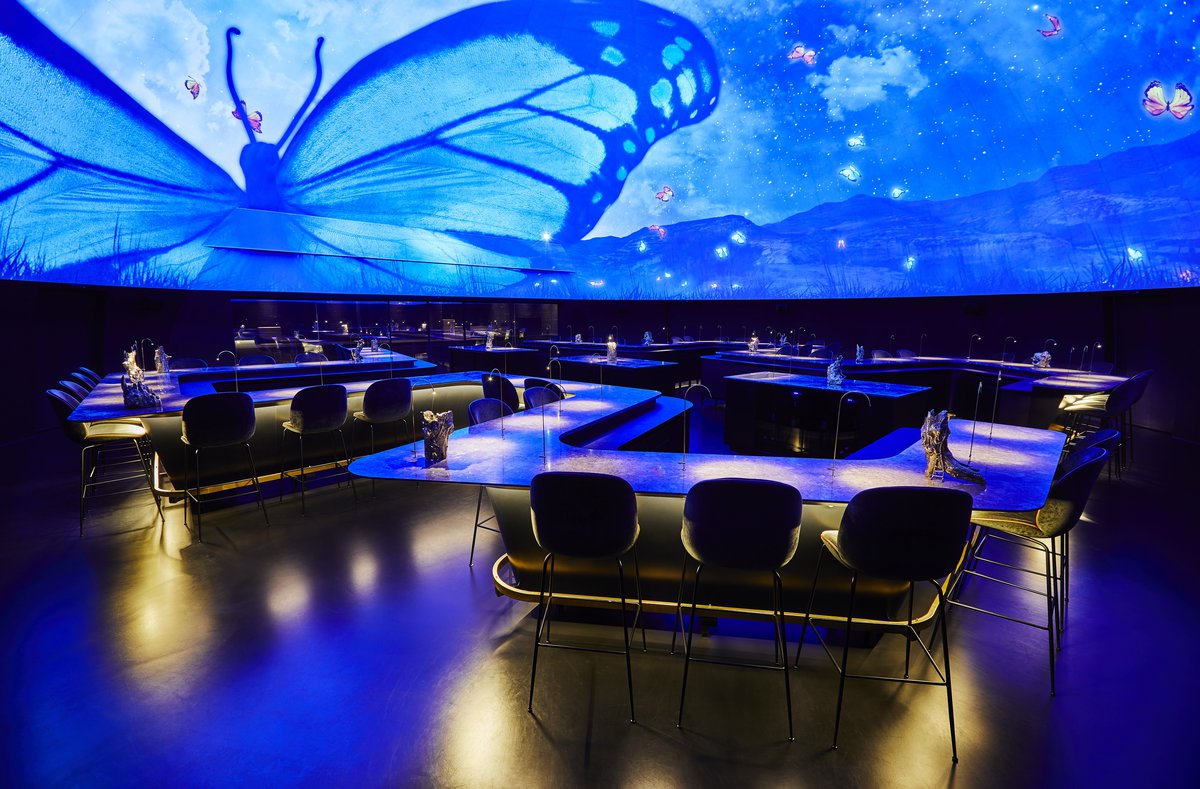
From the “à la carte” menu to your total “Holistic” experience: a huge leap. How could fine dining evolve in the next few years?
I believe this to be a perfect moment to drastically redesign the concept of “Fine dining”. Personally I find that having talent and resources and therefore visibility, without using them, is a gigantic lost occasion.
Few years ago, I had the chance to serve a hot and comforting meal to some families in difficulty, during the Christmas evening. The sensation I felt inside, the human gratitude and satisfaction my soul experienced were so intense: I literally understood how food could be the perfect vehicle for a bigger meaning. Chasing only recognitions and technical perfection suddenly became so poor, so insignificant. I decided to quit the job I had at the time and give a new sense to all my knowledge, opening what was going to be the first version of Alchemist.
We still use the highest quality produce and work along with precious ethical farmers, but it became an essential base we don’t want to show anymore.
Today, important restaurants, should find the courage to embrace greater causes and lead the change; or at least try to.
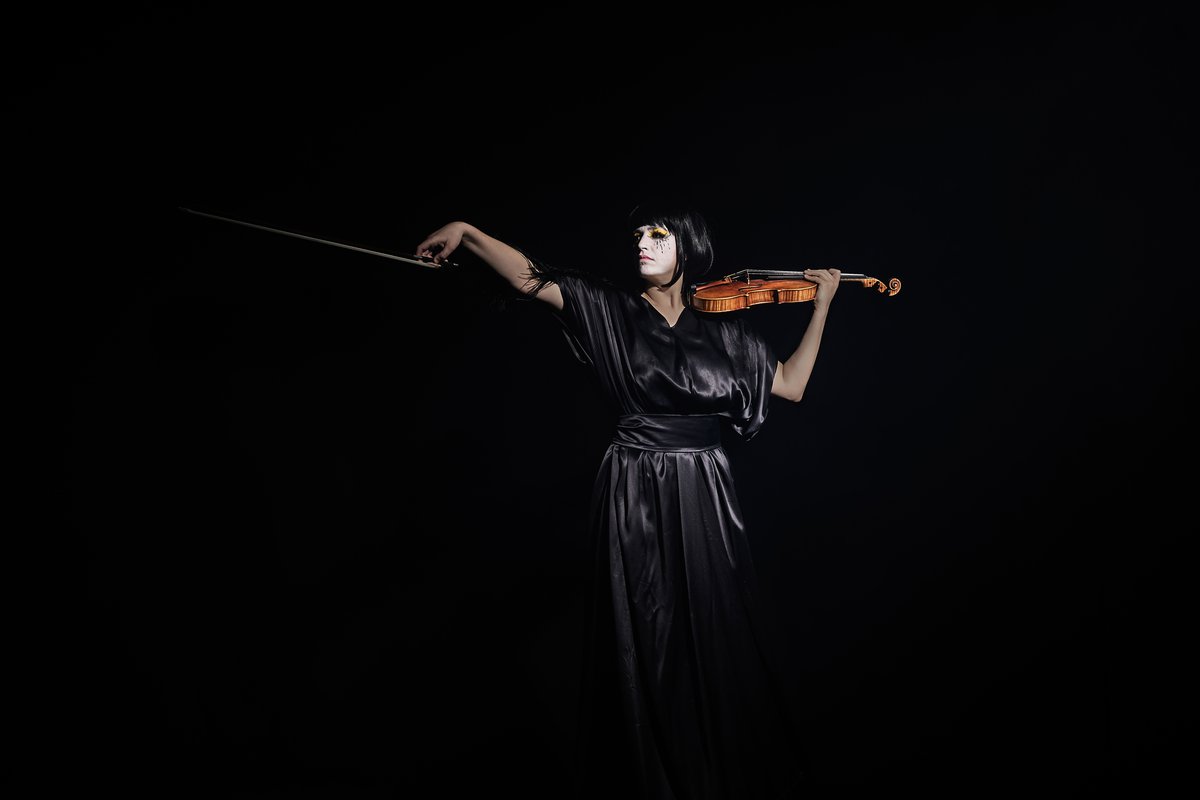
Your menu is often containing “unusual" ingredients, in order to create awareness. Which products will become central in the future? What will disappear?
The worlds of meat and fish are today representing the primary problem, obviously. But there are several key aspects to understand.
Let’s start by saying how those products will, hopefully, become celebrative and rarely consumed, like truffles. Here the reflection becomes deeper and complex and can’t find answers just in a vegetarian or vegan diet: we wouldn’t have enough sustainable resources for everyone.
But also the production of “plant-based” items represents a huge question mark, both for the environment and for health.
At Alchemist, we chose not to remove animal proteins from our menu, it didn’t feel right. We rather replaced “rich” cuts from commercial animals with fats and innards from “less noble” ones; or with courses based on invasive species, such as sea urchins, king crab and some kinds of jellyfishes and butterflies, but also seaweeds and plants. We make our guests face the death of animals and the possibility of understanding new nourishment sources, in the rawest form possible.
Future passes through an occasional and balanced consumption, through a respectful usage of these nature gifts. And also through the discover of new substitutes, there’s not a second choice.
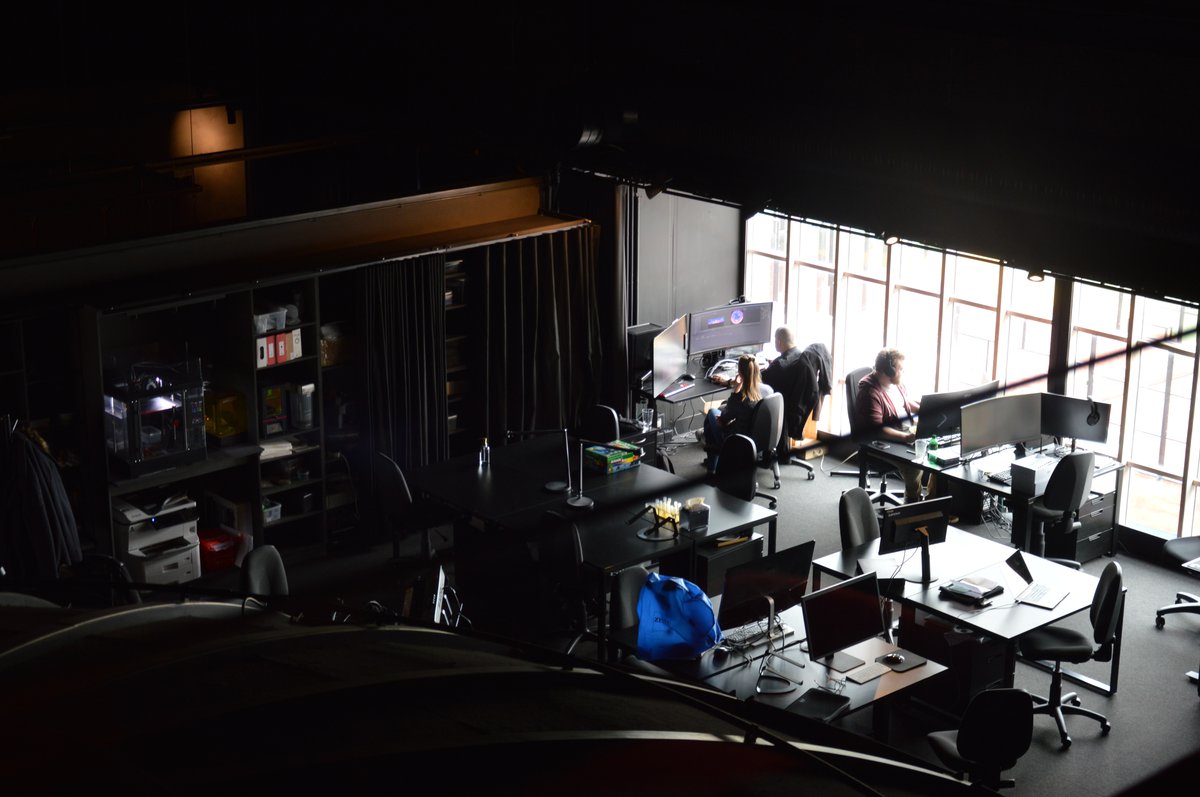
How can we evolve the productive system into a less impactful machine?
These are the last useful years to discuss about the toxicity of the productive chain. It is perhaps the hardest problem of them all being, especially in the western culture, extremely out of control. We never want to sit at a table or enter a supermarket which aren’t full of produce: we are psychologically dependent from abundance and too much confident in throwing away something that, ignorantly, doesn’t convince us.
But here’s where fine dining can act: instead of sitting on a side and playing the role of the “innocents” while pointing our fingers to the “mean” industry, we should start a side-by-side direct dialogue, trying to innovate and suggest improvements. We have enough knowledge to be placed at the service of a more ethical production, we can teach how to reduce waste and still maintain quality and sustainability.
The cliff between the “big distribution” and chefs is too vaste and polarizing, surely not helpful in the pursuit of such an important common goal.
Luckily enough those food giants are progressively more and more available for a deal. In order to make a profit? Also, but that’s maybe the necessary engine to start this revolution.
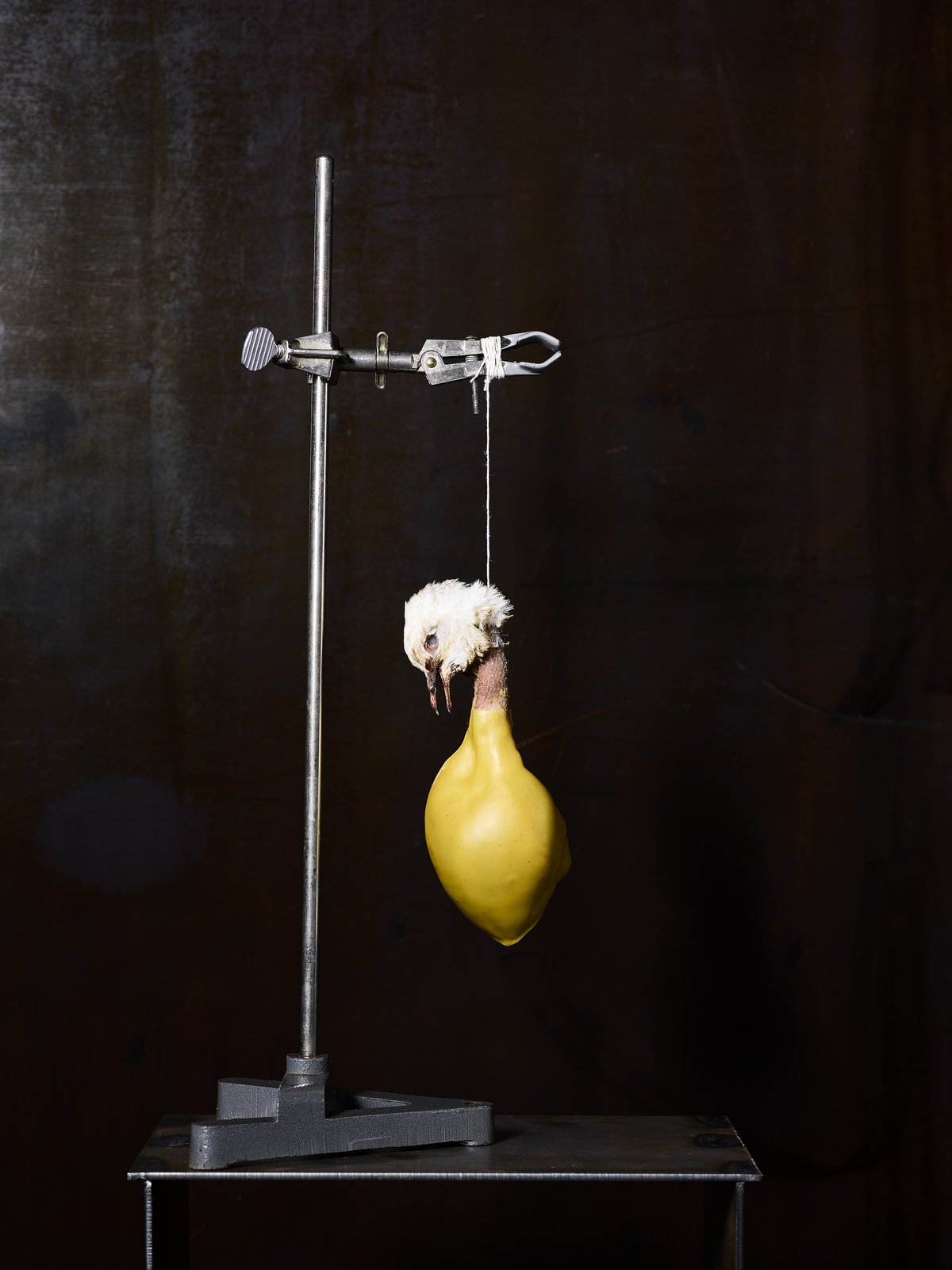
We faced an interesting evolution of the Chef’s role : from humble workers to icons. How, in your opinion, should it evolve now?
This occupation, this title, obtained a lot of recognition in the last years; and a lot has also been given back to the world, but not enough: we need more education, more pure passion, not corrupted by tv shows or important prizes. Too many colleagues still work only to fulfill their own ego.
But we need to understand that the transition is already occurring. If once this job was linked to the kitchen room only, nowadays we often encounter the concept of “chef-entrepreneur.”
Personally I don’t like much the “Chef” definition, since it represents only one of my duties here at Alchemist: I am the co-owner and I supervise the activities of R&D, interior design, VFX, tableware and clothing production, performance and communication. Basically a form of eclecticism which I find particularly adapt to a contemporary cook: more cultured and involved. I discovered how the creative potential could flow through multiple channels and result in a magnificent coherence, depth and meaning layering.
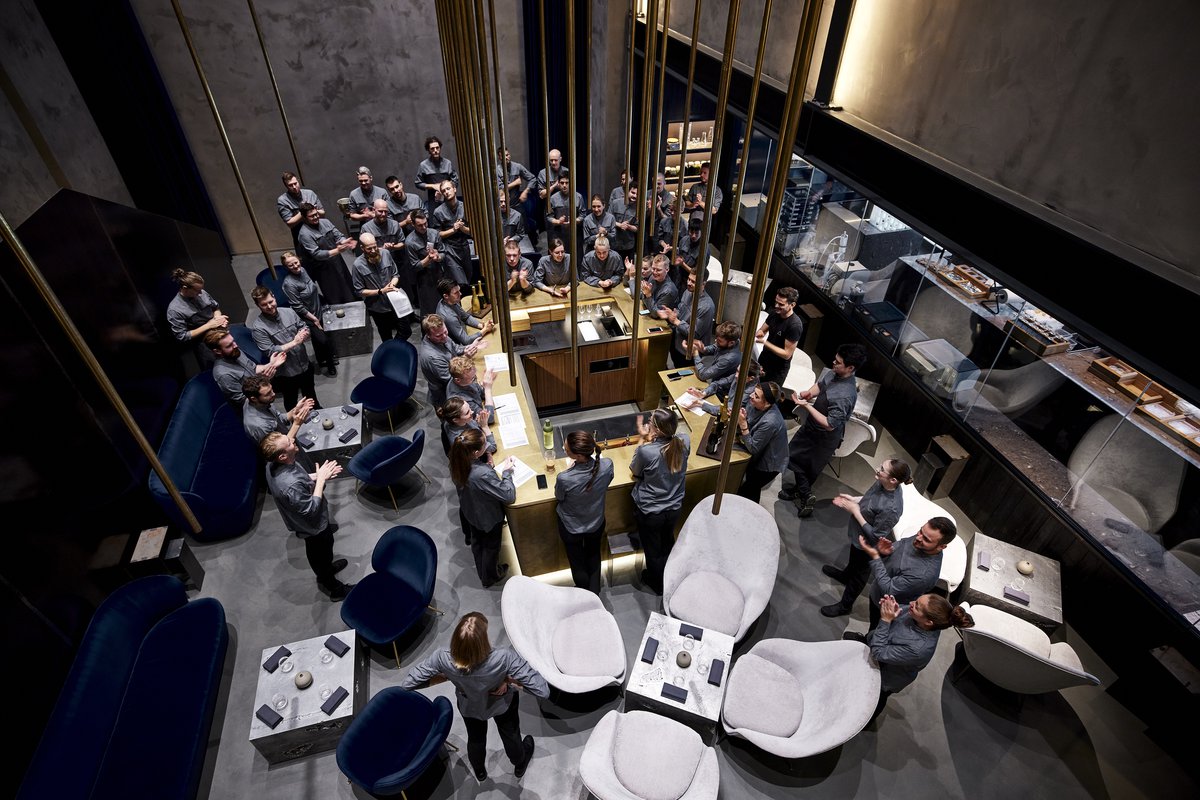
Coherence, let’s talk about it. Many important restaurants offer ever-changing long degustation menus. How hard is to innovate and still remaining, well, coherent?
I find this a very important question that every chef should ask himself.
Every time a new R&D staff member arrives, I always try to explain the concept of limitation. Of expressing yourself and searching for avant-garde, but according to a right measure. Meaning: don’t serve a “weird” dish just because it’s impactful or new, but only if matched with a deeper message. Our mission is loud and clear, and we work accordingly to that, without being influenced by individual potentials.
If only people would know how much more we could serve, how deep in the “rabbit hole” we could push them, they would ask themselves why we are stopping before. We could serve, essentially, entire menus of strange and provocative dishes. But would that be useful?
We act in a striking way to convey masses towards delicate topics like blood donation, oceans pollution or data privacy in the modern society.
We offer a “stunning” experience to hit people’s memory and share few ideas, but we never act for entertainment or glory. The final result, the trendy one online, is just the way to attract the attention of every kind of person, not only experts: because we all like to be surprised.
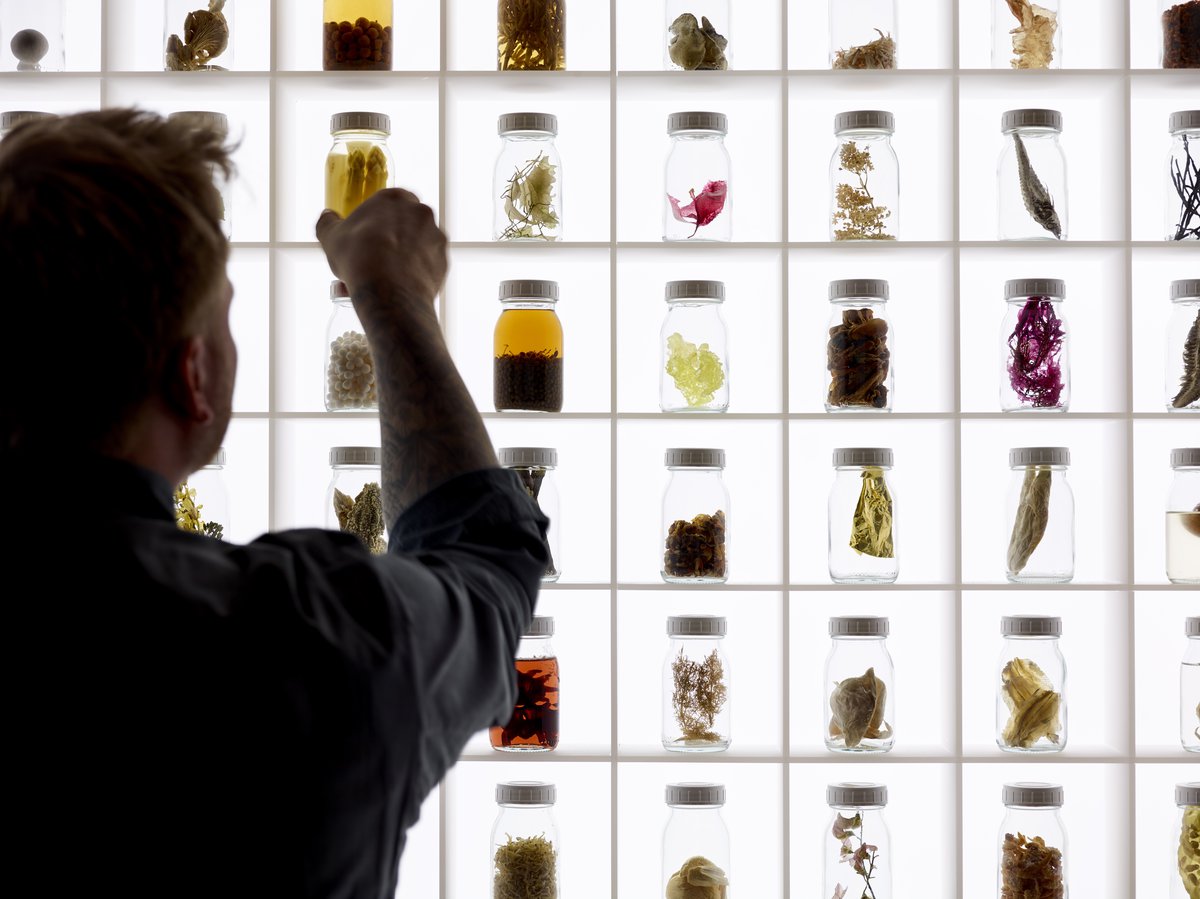
How can technology improve the daily kitchen workflow and the guest experience?
Tech is an essential part of Alchemist, and it definitely changes every aspect of our place. Obviously high quality and deliciousness are still the base, the foundation pillars: to serve an overcooked fish in an extraordinary ambience, is still a failure. But these two aspects can co-operate, help each other and create a unique synergy.
We propose many “impressions” which are eventually paired to a projection or a performance, giving the possibility to our guests of associating the dish to its message, and assimilate it better in their minds.
Eating a fish, covered with edible “plastic”, plated in a transparent art piece stuffed with beach trash and observe, on our dome, the images of a sea full of human waste, communicates something strong, a horrible truth. Possibilities are endless.
And then we have kitchen machines, a huge opportunity for our lab. They allow us to have an extended control over fermentations, understand the nutritional values, create new unthinkable and more precise shapes, aesthetically appealing, impossible to be realized with a traditional approach.
Once again every process needs its context, very less is revealed to the client and nothing is done to prove our abilities. Technology is extremely useful, if not exaggerated.
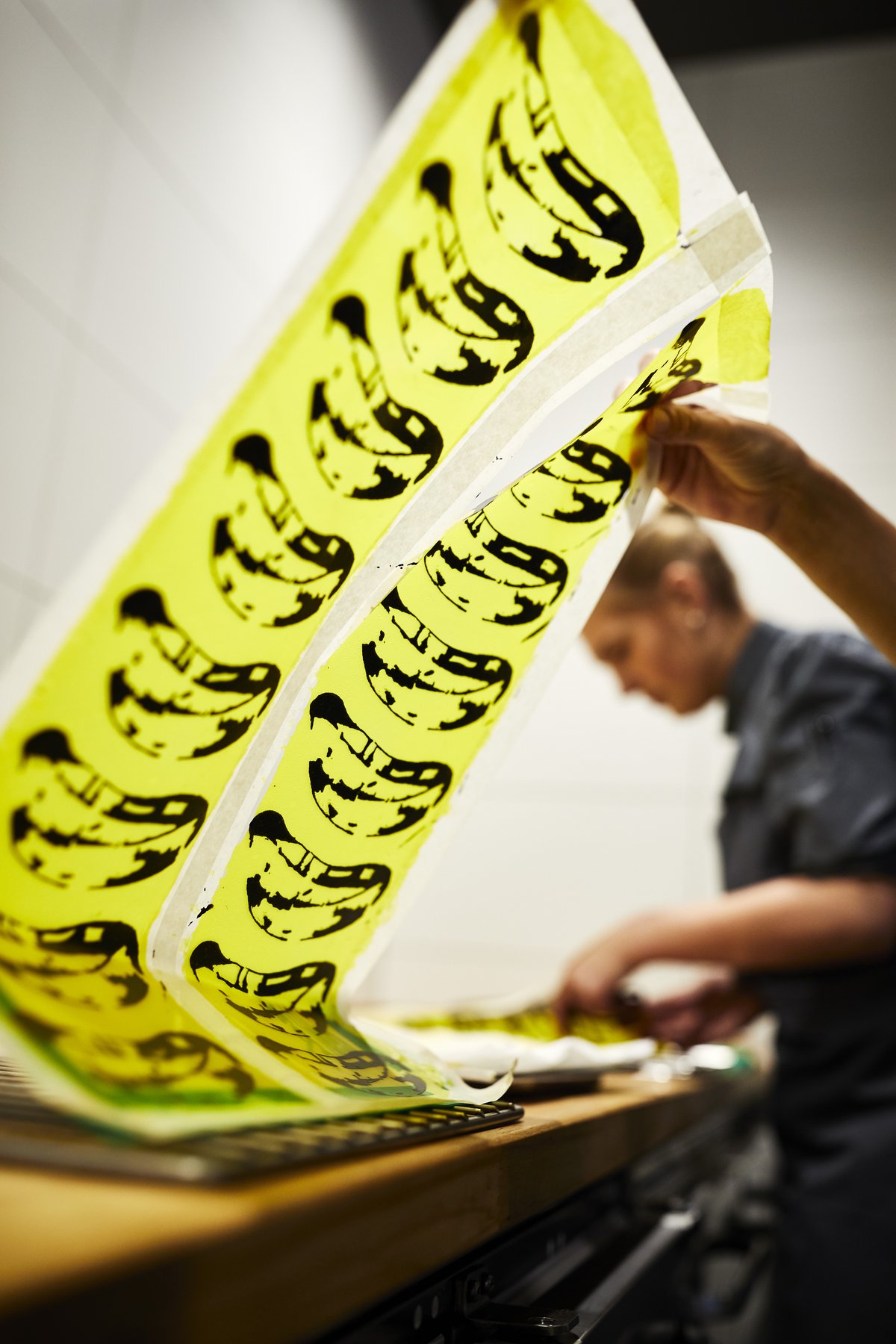
Food is often considered banal, casual, and only associated to nutrition and taste pleasure. Will it ever have the same value of other creative industries?
We were discussing about it few hours ago. It is definitely complicated to create value in this industry, since the final product is always represented by something ephemeral, that expires or is digested.
We are nonetheless working on several patents, regarding some technologies and preparations, which could open the road to new forms of exchange between professionals: we are trying to generate an interest that goes beyond taste, beyond experiences and involves a healthy form of business. That ethical profit which allows you to pay more your employees and invest in important projects, inducing also a social value.
A very important artist once told me that cuisine needs to consider itself art first, so that also everyone else will. And maybe he is right.
Yes, maybe, we need the strength to believe that our profession is one of the loudest forms of expression; because we talk to the stomach, we have a conversation with that primitive part of the brain and arrive where few others can. And the “Holistic” cuisine is, after all, connecting the rational intellect to the animal one, the irrational one, maintaining those nutritional and taste qualities you mentioned before. They are the starting point of a cultural act, just like we see the chef as a starting point of a bigger role.
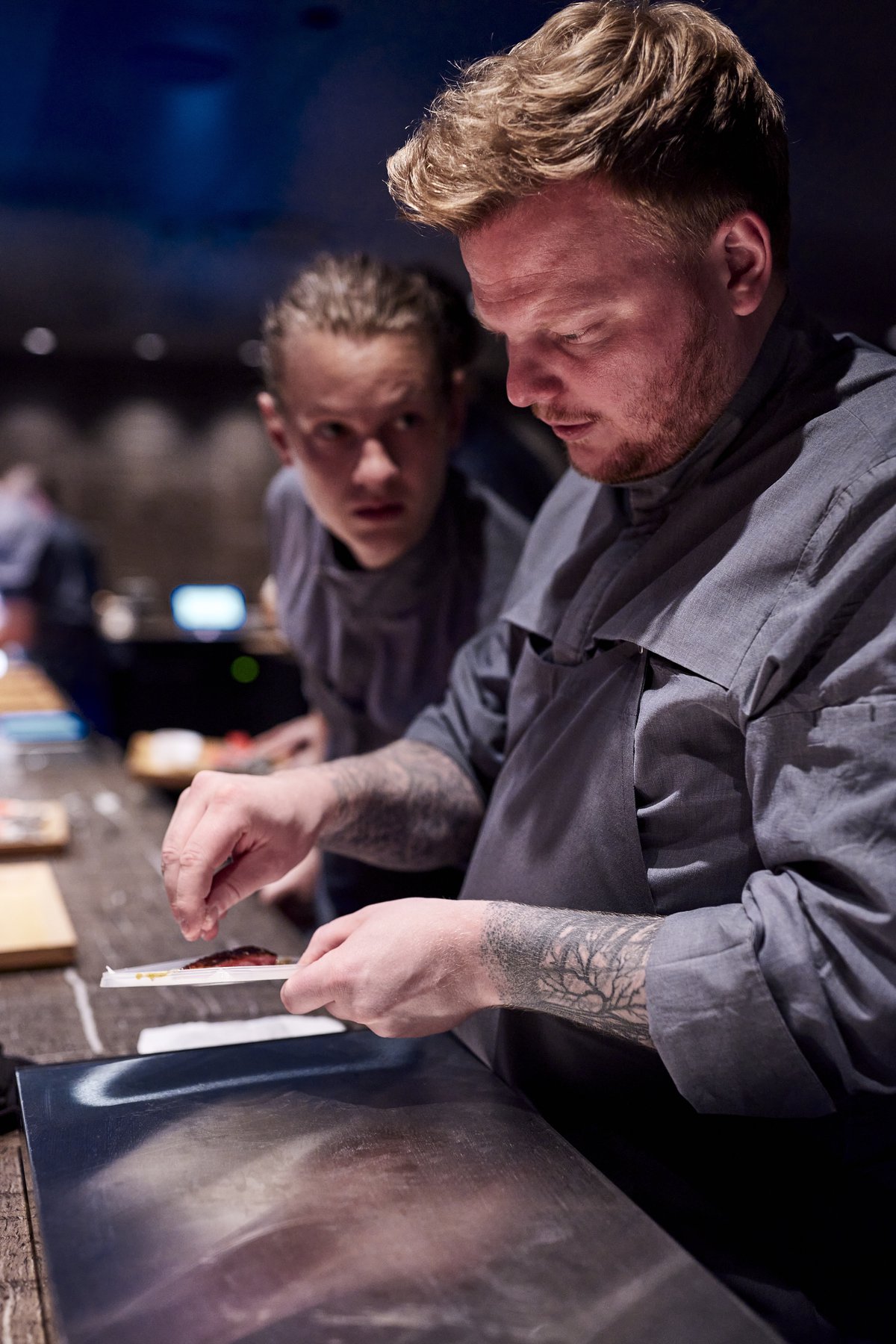
Restaurants are facing huge problematics regarding rights equality. How do you see it changing?
A lot of chefs, too many, work in a very deplorable way, violent. We would like to believe that the authoritarian-screaming-chef era ended, but it's not true.
We, at Alchemist, could afford the hard choice of highly rising the menu price, in order to secure our numerous staff members with a fair working schedule and salary.
I am conscious of the fact that almost no place can economically sustain this, but respect comes for free, is just about culture; and it values for both labour exploitation and gender equality.
A generational exchange is required, as well as open minds and a punctual and proper leadership training. Our Future, I believe, relies on ethics.
The projects Rasmus Munk carries on at Alchemist are special, complex, deeply human. The questions and concerns around our planet are delicate and difficult, yet so linked to our extinction: gradually inserting them in our every-day life could be the only road leading to the necessary and urgent cultural shift. We can and should make an effort to pass from the age of human impact on Earth, to the age of human awareness. To be a leader, as we humans see ourselves, it also means to protect and help who’s weaker, to admit mistakes, to limitate the power we are given and use it consciously.
An effort that, possibly, will save us all.
